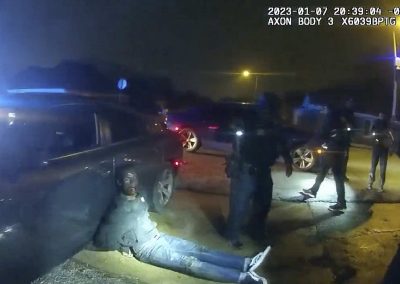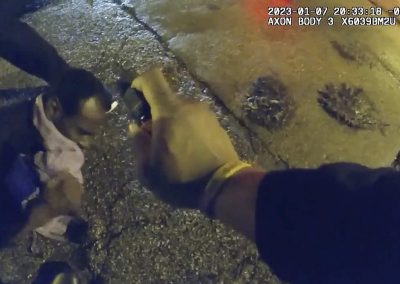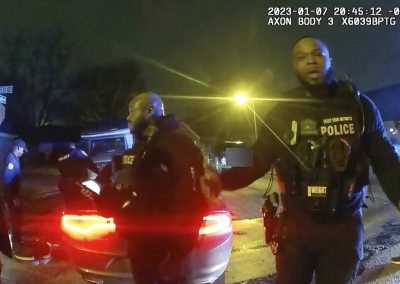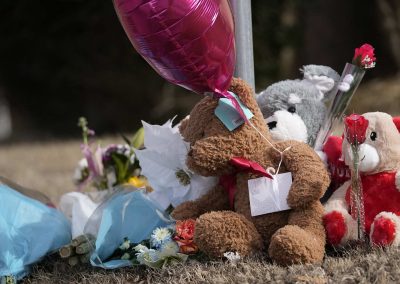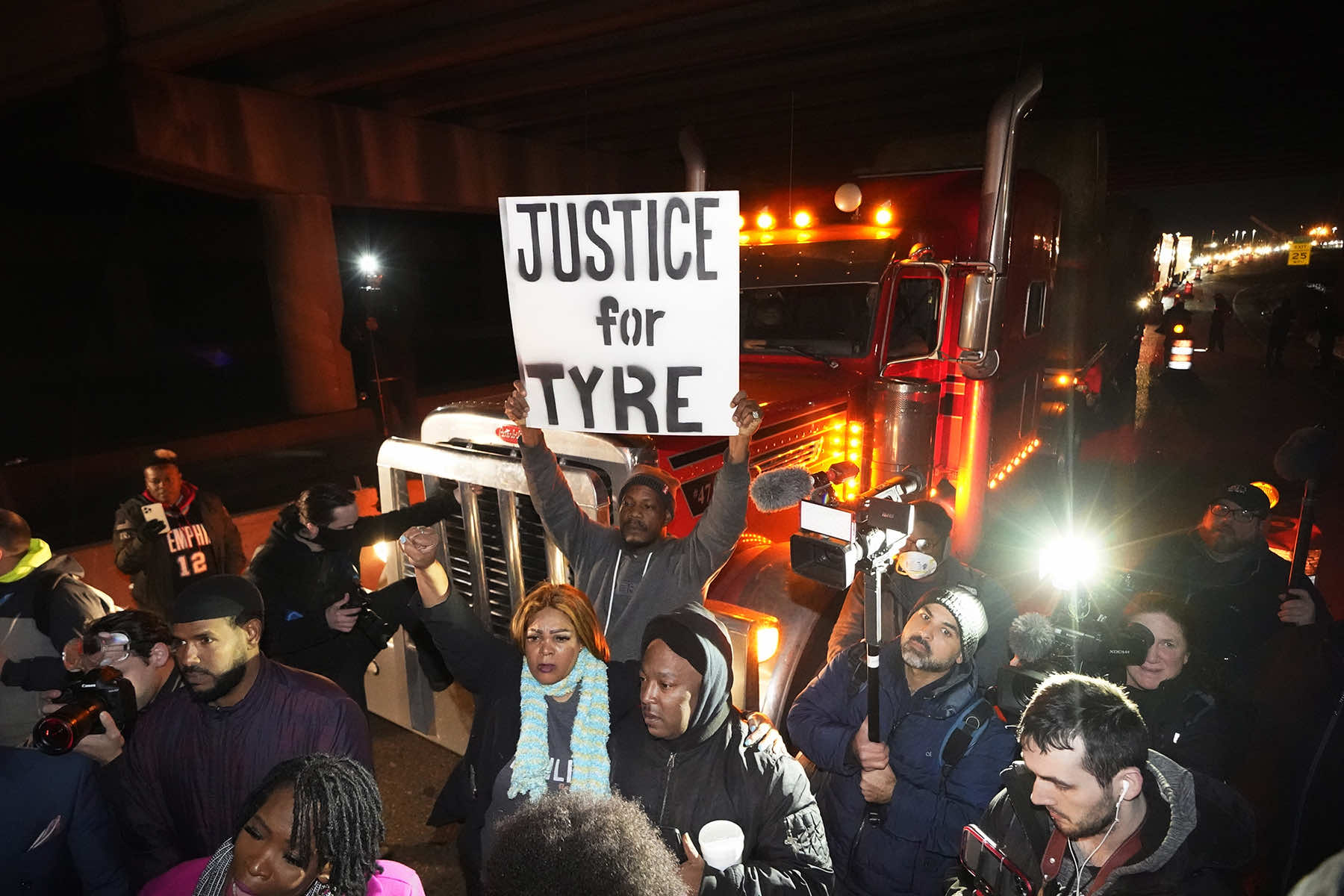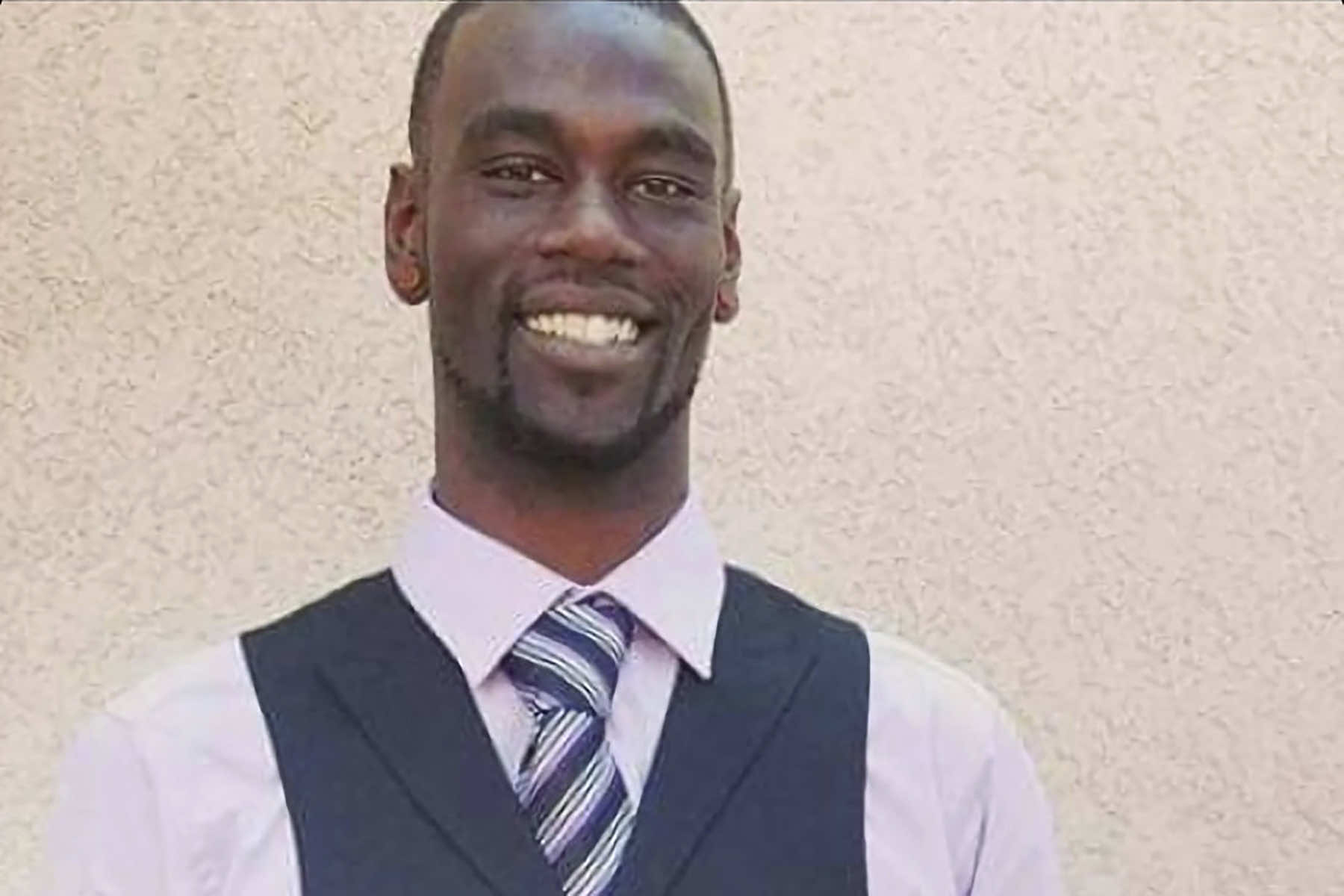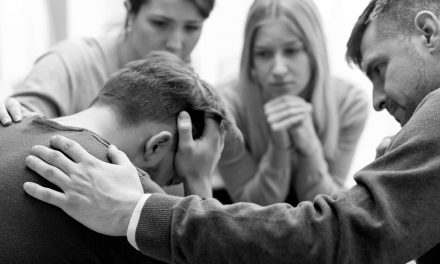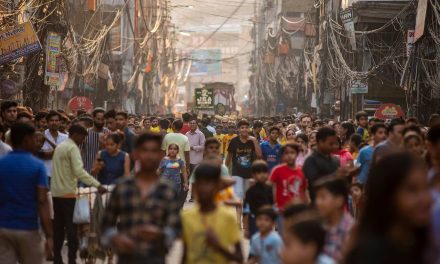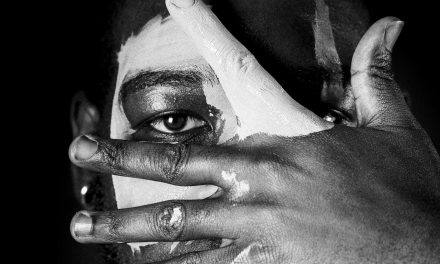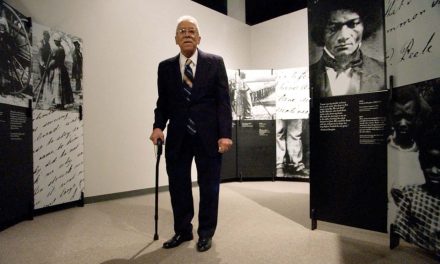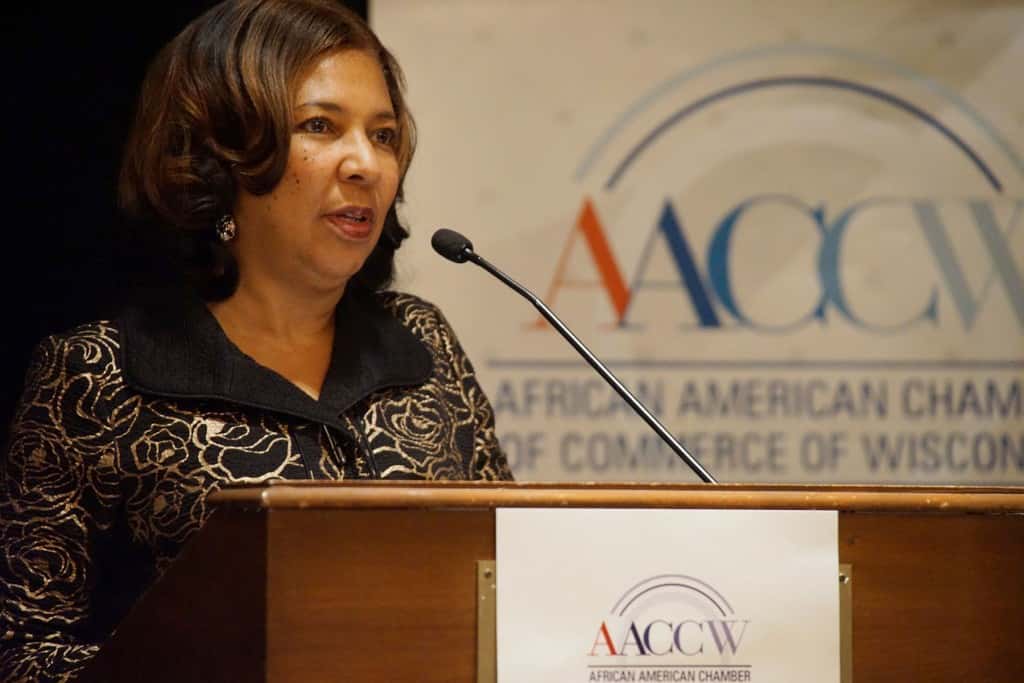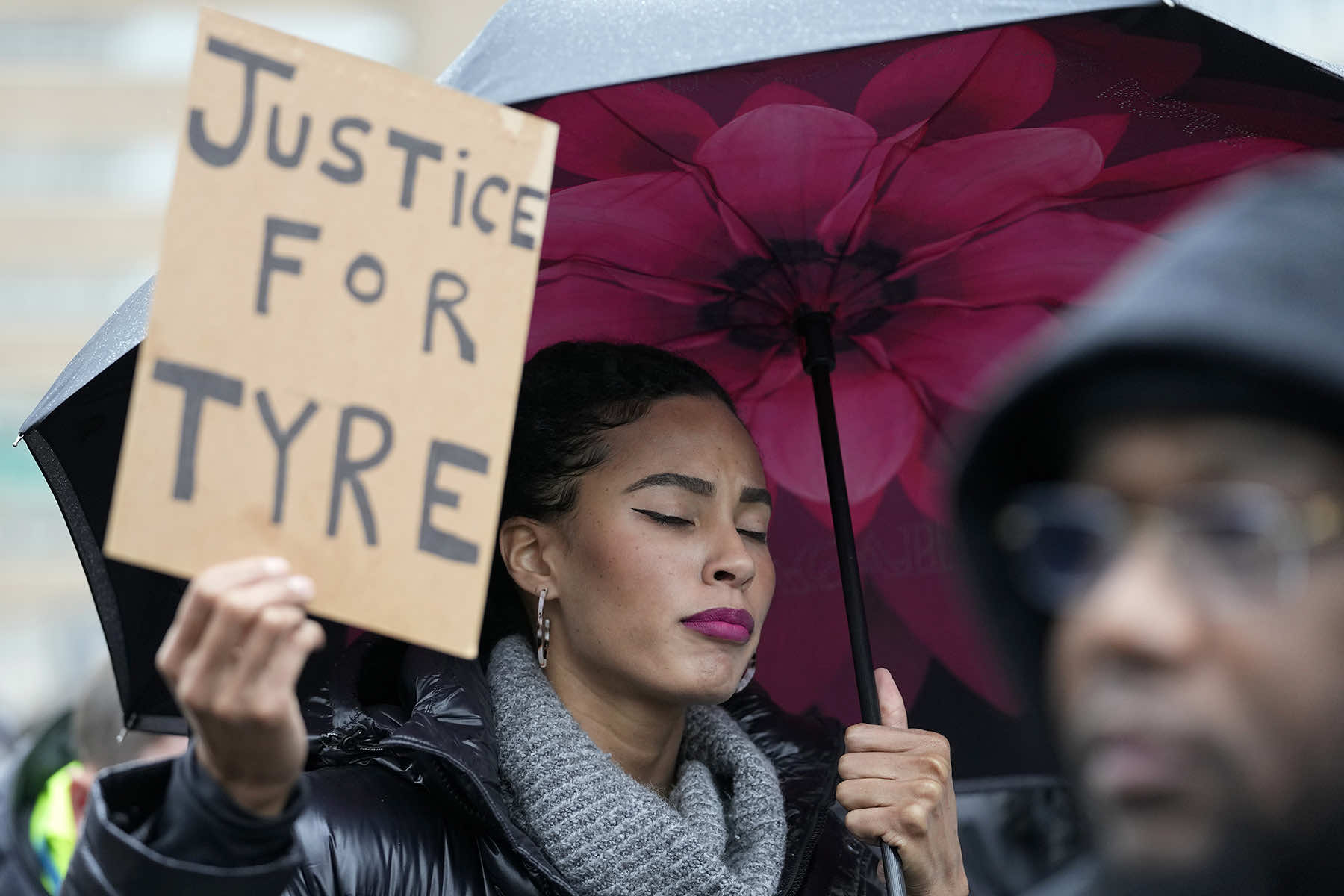
Sometimes it feels like the hate that we give back to ourselves cuts the deepest. This American experience can be challenging for a numerous reasons. No matter who you are, you struggle to make a living, make a life, and just find an existence that will help you reach your purpose.
Coming from a minority or a marginalized existence can present its own challenges, so we try to assimilate as best as we can. But how are we to know that assimilation into American society also comes at a price?
We wish we could just remember Tyre Nichols as a loving 29-year-old father of a 4-year-old boy, a talented skateboarder, and a passionate photographer who loved capturing landscapes and sunsets, mindfully meditating to a horizon in which he envisioned a beautiful long life. Unfortunately, Tyre’s death is yet another painful reminder of the collective trauma that the Black community continues to suffer at the hands of American policing culture.
The fact that all five police officers involved were Black does little to ease the pain surrounding his in-custody death. Instead, his murder highlights a very disturbing trend in America – which is how traditionally marginalized and minority communities are adopting positions and the psyches of power only to be the cause of harm themselves.
Unfortunately for Tyre Nichols, the Nichols family, the officers involved, and their families, the harm has already been done. However, the Black community is not alone in this. The learned behavior of American violence and the “might makes right” mindset is spreading here and abroad.
Just recently in California, two separate mass shootings involved two Asian men killing 18 other Asian Americans. Also, well documented are the atrocities that continue to impact refugee families seeking asylum at the Mexico-U.S. Border, with many of those committing violence against the Mexican people being Mexican politicians, cartels, coyotes, and border patrol officers.
Self-hatred, self-doubt, self-guilt, and self-loathing has been the cost of assimilation for so many Indian Americans. Hindus, Sikhs, and Muslims who are so consumed by the American Dream that they keep their heads down in the face of these injustices, silently hoping to one day exist in a self-made bubble of naïve happiness and wealth.
The indigenous community has been marred by a history of this as well. Tribes were influenced to cooperate and conform with White society, and then backstabbed themselves by other tribes. The Jewish community, who intimately understands the impact that corrupted power can have, are also not immune. Women, historically disadvantaged in America, often find that other women create their obstacles in reaching for improved agency.
In a country that attributes power to White Christian men, even they are not immune to this syndrome. Both Evangelical Christianity and toxic masculinity have become associated with the political idea of power and strength, which directly conflicts with the essence of compassion and faith taught by Christ – the anointed Messiah sent to deliver humanity from sin.
While we must be careful to not conflate anyone’s experience to another, it must be understood how this spirit of power over another has become an incredible cancer in America. A cancer that does not only consume others, but often consumes the host.
The five black officers involved worked in a culture that demanded control and compliance. Over time, they were expected to carry out swift and often harsh justice before the suspect made it to the courtroom. The harsh landscape of patrolling the city provided them the validation in their hearts to use force where the ends were justified by the means.
They became numb to the needs of community because squads like these are not there to community police, they are there to inflict terror. They had ingested all too well the same hate that was once inflicted upon them. This cancer at some point consumed them. And when they looked for treatment to cure this cancer, in the form of support, they quickly realized that the same system they supported was quick to sacrifice them when they were no longer served their purpose.
This may sound harsh, but traditionally marginalized communities have come to understand that systems and policies that typically afforded protections to White affluent counterparts do not return the same consideration to non-affluent communities of color.
This is evidenced by large scaled systemic failures that justify harsh treatment, and the conditions that some receive or do not receive over others. While ultimately, the swift justice that followed in the aftermath of what happened in Memphis was well deserved, would there be the same sense of systemic indignation if this involved 5 White police officers?
“In social theory, internalized oppression is a concept in which an oppressed group accepts the methods and incorporates the oppressive message of the oppressing group,” many times even against that group’s own self-interests.
Is the American experience for traditionally marginalized communities becoming one in which the price of assimilation is eventual self-destruction?
Subconsciously learning the same kind of hate that once held privileges over those same groups. A multicultural society acculturated into craving power and authority. Repeating the same cycles of communal trauma that once made them suffer and cringe, only to have it become so internalized and normal that it no longer even makes some people feel.
As we reflect on what is happening to us, internalized oppression does not add up to what happened in Memphis. We should call the condition what it really is – internalized White rage.
To undo it, we must have the courage to look into the causes of this cancer. We must redefine systems and psyches of power and influence. We must come to understand that the vulnerability of not wanting to feel weak is exactly what makes us weak.
We have to go past the discussions of Black-on-Black rhetoric, or the White-on-White counter-point, and come to realize that the hurt we give back to ourselves comes from the hurt we have consumed. A pain that is so consumed that it has ultimately robbed us of the cure, living our existence with pride.
Tyre Nichols lived his life with pride. May we never lose sight of his gaze into the distant horizon. A horizon in which we all take pride in our love for each other.
© Photo
Gerald Herbert (AP), City of Memphis, and Nichols Family

